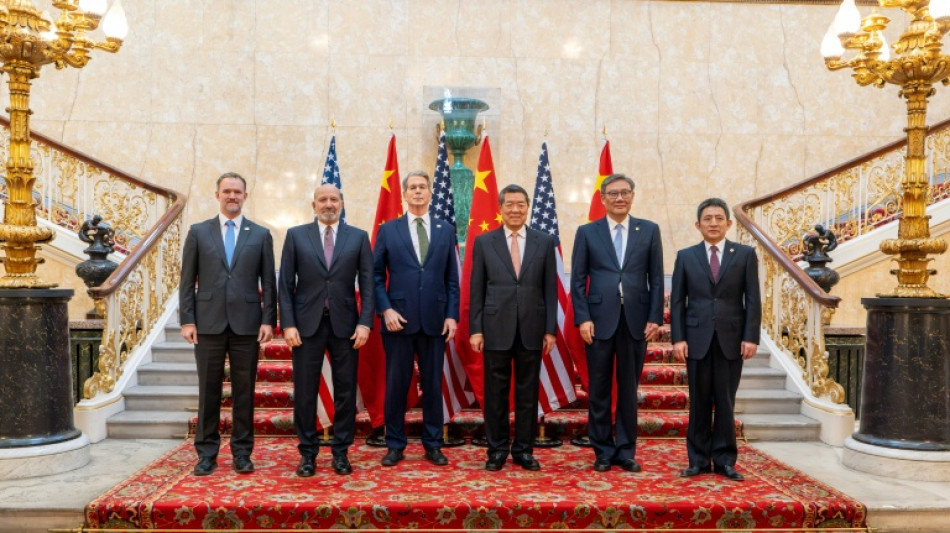

US-China trade talks stretch into evening on second day
A second day of high-level talks between the United States and China stretched into the evening Tuesday, as officials gathered in London to defuse a bitter trade war that has been dragging on the global economy.
Negotiators, who started meetings in the morning, held discussions during the day and took a break before an expected reconvening at 8:00 pm local time (1900 GMT), according to a US official.
All eyes are on the outcomes of the talks as the world's two biggest economies try to overcome an impasse over export curbs and come to a longer-lasting truce in their tariffs war.
US Commerce Secretary Howard Lutnick earlier told Bloomberg Television that the talks were "going well", expecting them to last "all day".
But global stock markets were on edge.
With talks dragging on, "the lack of positive headlines weighed on stocks and the dollar," said Kathleen Brooks, research director at XTB trading platform.
One of US President Donald Trump's top advisers said Monday that he expected "a big, strong handshake" after the meetings in the UK's historic Lancaster House.
Trump told reporters at the White House on Monday: "We are doing well with China. China's not easy."
The negotiations began on Monday in London, coming after an earlier round of talks in Geneva last month.
This time, China's exports of rare earth minerals used in a wide range of things including smartphones, electric vehicle batteries and green technology are expected to dominate the agenda.
"In Geneva, we had agreed to lower tariffs on them, and they had agreed to release the magnets and rare earths that we need throughout the economy," Trump's top economic adviser, Kevin Hassett, told CNBC on Monday.
Even though Beijing was releasing some supplies, "it was going a lot slower than some companies believed was optimal", he added.
"Our expectation is that after the handshake, any export controls from the US will be eased, and the rare earths will be released in volume," Hassett said.
This marked a signal that the Trump administration might be willing to ease some recent curbs if China rolled back rare earths restrictions as well.
- Concessions? -
Tensions between Washington and Beijing have heightened since Trump took office in January, with both countries engaging in a tariffs war hiking duties on each other's exports.
The Geneva pact to cool temperatures temporarily brought new US tariffs on Chinese goods down from a staggering 145 percent to 30 percent, and Chinese countermeasures from 125 percent to 10 percent.
But Trump recently said China had "totally violated" the deal.
And analysts remain cautious.
"We doubt that the US will back off completely. That's likely to restrain any relief rally," said Thomas Mathews, head analyst of Asia Pacific markets for Capital Economics.
Ipek Ozkardeskaya, senior analyst at the Swissquote Bank, said although there had been "no breakthrough," it seemed "the first day of the second round of negotiations reportedly went relatively well".
On what he dubbed "Liberation Day" in April, Trump unveiled sweeping levies of 10 percent on friend and foe alike, and threatened steeper rates on dozens of economies.
The tariffs have dented trade, with official figures from Beijing showing Chinese exports to the United States in May plunged by 12.7 percent.
China is also in talks with other trading partners -- including Japan and South Korea -- to try to build a united front to counter Trump's tariffs.
Chinese leader Xi Jinping on Tuesday urged South Korea's new President Lee Jae-myung to work with Beijing to uphold free trade and ensure "the stability and smooth functioning of global and regional industrial and supply chains," Xinhua news agency said.
Chinese Vice Premier He Lifeng is heading the team in London, which included Commerce Minister Wang Wentao and China International Trade Representative Li Chenggang.
US Treasury Secretary Scott Bessent, Lutnick and US Trade Representative Jamieson Greer are leading the US delegation.
K.Ahmed--MT




